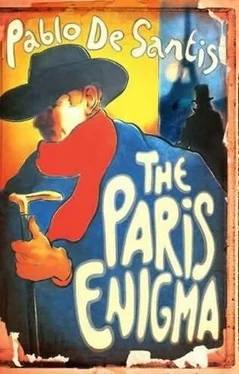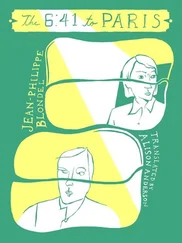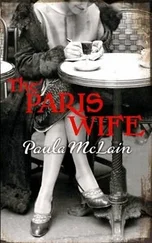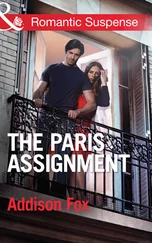We hated Alarcón for that. We also hated him because his family was richer than any of ours, their fortune built on the construction of ships. He could aspire to be an ambassador or devote his life to traveling and women, and yet he had chosen to compete among us. And he was outdoing us. Trivak and I loathed him more than anyone: I was a shoemaker’s son and his father was one of the few Jewish lawyers in the city at that time. But even as we hated him, we recognized his merits (which far from assuaging our hatred, increased it). Alarcón always followed an unexpected and solitary path. He never asked for permission, but moved through the world as if all doors were open to him. His familiarity with the Craigs was unnerving. He had tea with Señora Margarita every afternoon. When the detective was out of town, she spent hours in his company. He became a substitute-of course, only at teatime-for her husband.
When Craig revealed the solution to the case of the locked room- one that had obsessed the detectives-Alarcón responded, “Calling a murder ‘a locked-room crime’ is the wrong approach to the investigation, because it assumes that locks are infallible. There are no truly locked rooms. Calling it that presupposes an impossibility. In order to solve a problem, it has to be correctly posited. We mustn’t let semantics blue our logic.”
We hated him. We competed among ourselves, not with him. We were fighting over second place, in a race where only first place mattered. On the days when Craig was traveling for a case, things were more relaxed and we went home earlier than usual. Trivak would stare, perplexed, from the doorway at Alarcón, who instead of leaving, would go upstairs, with those slow, almost weightless, steps of his, to accept Señora Craig’s excessive hospitality.
In the academy, on the first f loor, there was a meeting room that was never used. An oval table with chairs around it stood in the middle. Both the chairs and the table were heavy, impossible to move, as if the wood had petrified. We called it the Green Room, because there were branches and vines painted on the ceiling by an artist who had begun his work with patience and diligence and had obviously tired of botany by the end. The exacting calligraphy of stems and veins became a confused mass of branches whipped by a storm. The walls were covered in dark wood, hung with swords, harquebusiers, and coats of arms; it all had a somewhat pretentious air, like the houses of antique dealers. The room looked like the remains of some abandoned project: the headquarters of a Masonic enclave, or a dining room that Señora Craig had envisaged for illustrious visitors who had never arrived. Called one day to convene there, we sat around the table, which was completely empty except for the dust, and Craig spoke.
“Gentlemen, in the last few years you have learned everything there is to know about crime. At least everything that can be taught in a classroom. Life is a perennial teacher, especially when the subject is death. Theoretical knowledge has its limits. Beyond those limits lies intuition, which is not something supernatural, as our friend Trivak, future member of the spiritualist brotherhood, insists. Rather it is the sudden relationship that we establish with other hidden, less dominant realms of knowledge. To intuit is to retrieve subconscious memories, which is why experience is the mother of intuition. It is nothing more than a specialized type of memory. Its goal is to find a pattern, connect the dots of this chaotic life.”
Distracted, I let my finger trace my name in the thick layer of dust that covered the table.
“For a while now I’ve been waiting for a suitable practice case to present itself, and now I have it.”
Craig spread out a newspaper page out on the table. We were looking for some big headline about an honest tailor shot to death, or a woman found f loating in the river, but there was only an ad for the performances of the magician Kalidán, the same magician who had been touring in the city when Craig announced the launch of his academy. At that time great magicians often came through our city, though now it’s not so common. Various types of phantasmagoria were popular in Europe and the public filled the theaters to see skeleton battles, luminous ghosts, decapitated bodies that spoke, and other marvels created with smoke and mirrors.
“For some time now I have noticed that this magician’s tours seem to coincide with murders and disappearances. The victims are always women: in New York a chorus girl disappeared, in Budapest a f lower vendor, in Montevideo a cigarette girl was found exsanguinated. The Berlin police questioned him in the death of a nurse, but they couldn’t prove anything. The few corpses that have been found (because our killer always tries to either hide or destroy the bodies) revealed that he drained the victims’ blood and then washed them with bleach. He always performs this purification ritual.”
Craig explained the case detachedly; six of us cracked our knuckles, angered by the crime. Only Alarcón responded to the tale with equal indifference. They both approached the challenge without emotion.
“Kalidán will be in the city for fifteen more days. Then he continues on to Brazil and we won’t have anything to investigate. I’ll continue explaining the case, and I’ll stress the importance of distinguishing coincidence from inevitability, but those of you who are any good will leave me here talking to myself, you’ll leave Detective Craig raving alone in this dusty room.”
All six of us rushed to the door, but by that time Alarcón had already disappeared.
We bought tickets for the performance and settled into the dilapidated seats of the Victoria Theater. We wanted to find some connection between the illusions with swords and guillotines in the magician’s show and real murders. But he joked as he did his tricks, far from the gravity that we, in our inexperience, expected from a murderer. Instead of exaggerating the mysterious air lent by his name and his sleight of hand, Kalidán joked about his fake exoticism.
After that first encounter, we each came up with our own strategy. Trivak pretended to be a journalist from The Nation and went to interview him in his dressing room. Miranda seduced an usherette and was able to go through his Chinese screens, boxes with holes for housing swords, and even the trunk with Edgar Allan Poe’s cut-off hand, which on stage tirelessly wrote the refrain of “The Raven.” Federico Lemos Paz had his uncle, who owned the Ancona Hotel where the magician was staying, employ him as a bellhop so he could search for clues in his room. At dusk we met in a corner café near the theater to exchange news of our progress, which wasn’t much. The only one who didn’t come to our meetings was Alarcón. Jealous and tormented, we imagined that Craig had sent him on a more important mission, while he distracted us with the magician’s games. Since we didn’t trust each other, we kept the information we thought most essential to ourselves and we reported irrelevant details with an air of secrecy and revelation. It was my job to search Craig’s archive.
The more progress we made, the more convinced we were that the fake Hindu, who was actually Belgian, was guilty, and that he hadn’t been caught because he always chose inconsequential victims, the daughters of immigrants, lonely girls whose bodies no one claimed.
After a week had passed, we met in the Green Room to present our findings. Our fingerprints were still there on the dusty table, a reminder of the last meeting. We listed the facts we had been able to prove, and we bragged about our various ruses to get into the magician’s life and spy on his past. Craig, bored, pretended to listen. Occasionally he would congratulate someone on his inventiveness (he liked that Lemos Paz had passed himself off as a bellhop, he recognized that my archive search had been methodical and responsible) but his congratulations were so insipid, so apathetic, that we would have preferred he shout out a reprimand or some sign of contempt.
Читать дальше












